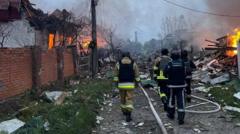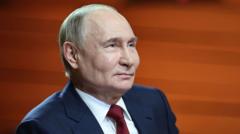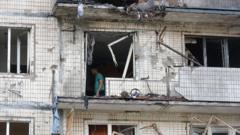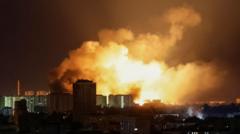The Kaskad brigade has emerged as a favored option for politically connected Russians seeking military service without the risks of frontline combat. This article explores how this elite unit offers short stints and the potential benefits for those involved.
The Kaskad Brigade: A Safer Path to Military Service for Russia's Elite

The Kaskad Brigade: A Safer Path to Military Service for Russia's Elite
A closer look at Russia's Kaskad drone brigade, where ambitious officials dodge frontline combat while gaining military prestige.
For the past three years, many young Russians have navigated various strategies to evade service in the ongoing conflict in Ukraine. However, an intriguing trend has surfaced where some actively volunteer for a specialized drone brigade known as Kaskad. This unit, which President Vladimir Putin has framed as essential for Russia's survival, offers a reprieve from the frontlines and has caught the attention of emerging political figures in the country.
Kaskad has been characterized by pro-war bloggers as a “sinecure for officials,” operating in a region of Ukraine under Russian control. Analysts argue that it transforms military involvement into an opportunity for political advancement, effectively branding it as a “V.I.P. unit.” While hundreds of thousands of Russian men have faced mobilization and prolonged stints at the front, the Kaskad brigade typically limits its members to service durations of three to eight months.
Given its remote operational setup, the risks associated with Kaskad are considerably low compared to frontline engagements. As a result, officials and politically astute individuals view enlistment not just as a patriotic duty but also as a strategic maneuver to boost their profiles back home. Various social media accounts provide a glimpse into these brief deployments, showcasing photo opportunities with military hardware and subsequent hero's welcomes upon returning to Russia.
The British defense ministry has commented on the function of enlistment in Kaskad, noting how it allows elite figures to bypass standard military obligations while securing personal safety and favor with the Kremlin. The portrayal of this brigade raises questions about the broader implications of military service in Russia, particularly concerning the stark divide between the experiences of everyday soldiers and those of the politically connected individuals in units like Kaskad.




















